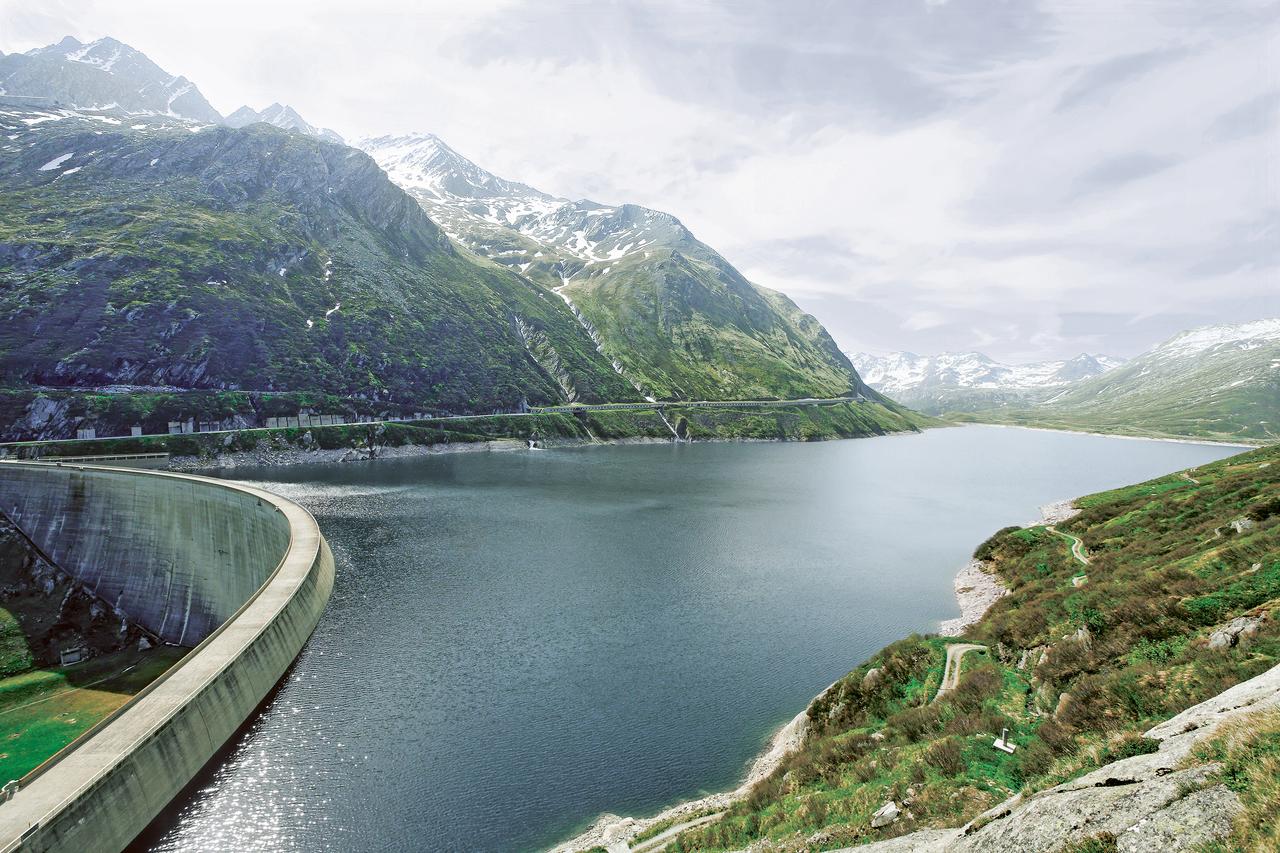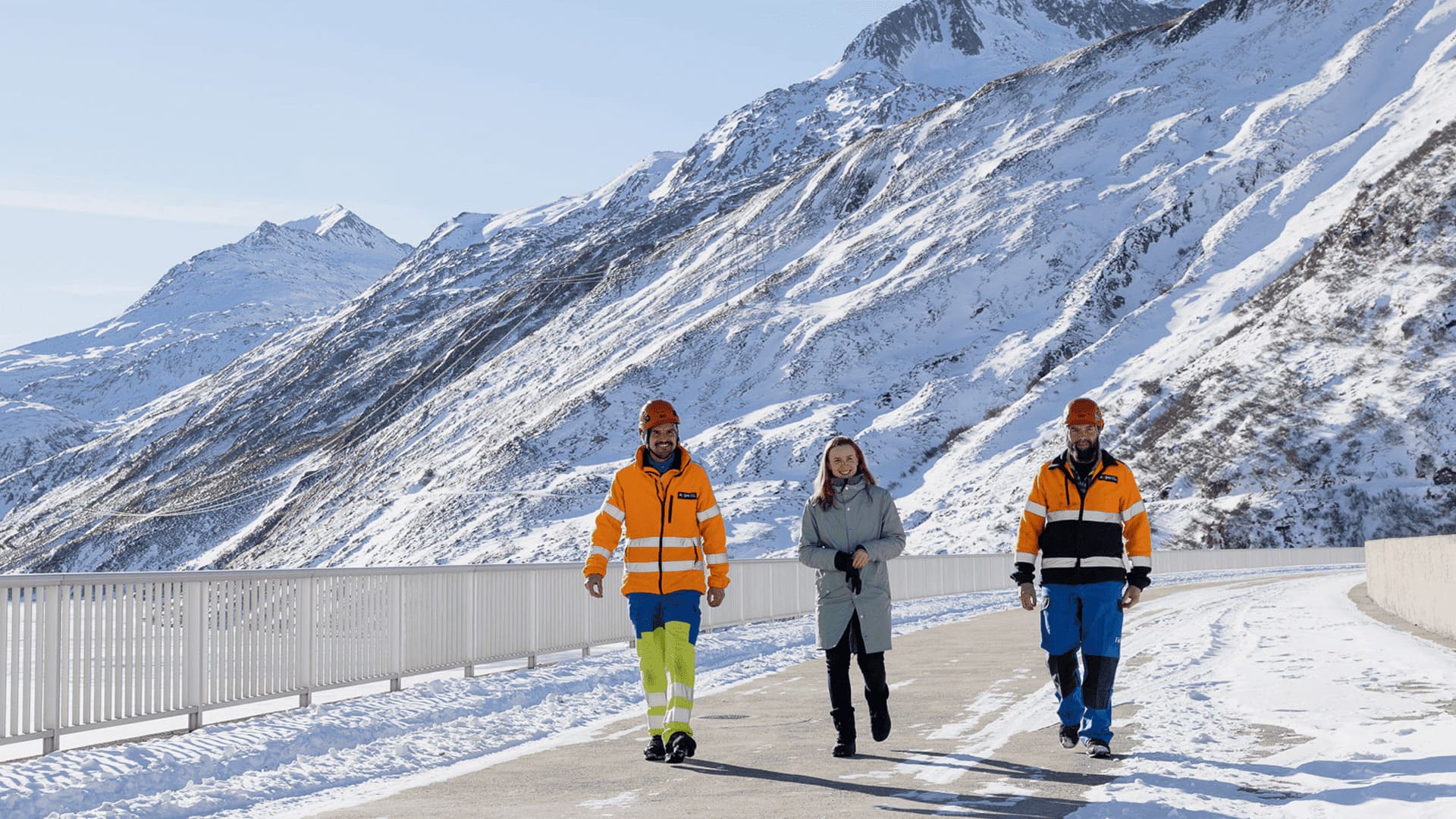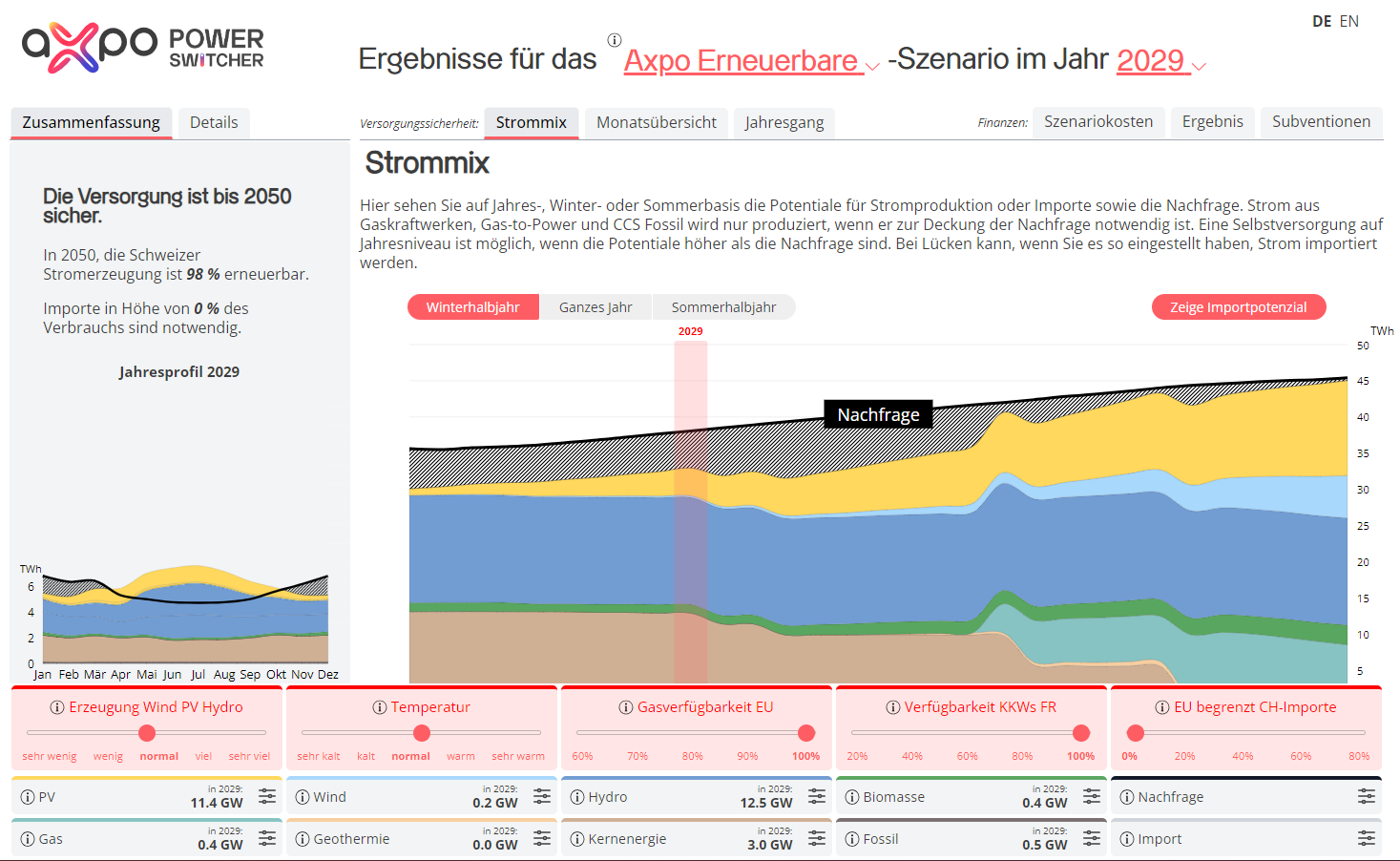12.07.2022 | How is the issue of reversion blocking the energy transition?
Uncertain future inhibits investment
Axpo is currently the largest producer of hydropower in Switzerland. This could change. Many mountain cantons are aiming to take hydropower plants into their own hands in a process known as ‘reversion’. What this means for Axpo – and for the energy transition.
They called it a technical marvel. Over 100 years ago, Nordostschweizerische Kraftwerke (now Axpo) constructed a line between the Löntsch storage power plant in Glarnerland and the Beznau run-of-river power plant in the canton of Aargau to create Switzerland’s first electricity network. Since then, hundreds of other hydropower plants have been built across the country, often with the participation of NOK, later Axpo. It is thanks to the work of these pioneers that hydropower is now the backbone of Swiss electricity production.
A large proportion of Switzerland’s hydropower plants were built in the mountain cantons, with their steep gradients proving beneficial for electricity production. This is why Valais, Grisons and Ticino are now among the largest hydropower cantons. They benefit from hydropower, too. The local cantonal authorities grant power plant operators certain ‘concessions’ – that is, the right to use ‘their’ water for electricity production for 40 to 80 years, subject to certain conditions. As compensation, they charge a water levy during the operation of the plant.
Cantons want reversion
Once this form of water usage right expires, the cantons can decide whether or not to renew the concession. If they don’t, they can take full ownership of the plants virtually free of charge. This is known as reversion. A number of mountain cantons – including Valais, Ticino and Grisons – have announced in recent years that they will be pursuing a reversion strategy in future – in other words, taking ownership of the hydropower plants.
This has consequences for the current owners of hydropower plants – like Axpo. They would be required to switch to operating the power plants solely on behalf of the cantons and municipalities. The concessions for 33 Axpo hydropower plants will expire by 2050. If these plants go to the cantons, the Axpo hydropower plant system will lose around 2 gigawatts (50 per cent) of its installed capacity.
While the ownership structure of the hydropower plants will only change in the very long term, the unclear situation around reversion is having immediate effects as well. It is preventing investments in hydropower and thus slowing the energy transition. One example from the canton of Valais: the Mattmark reservoir in the Saas Valley is one of 15 sites being considered by the ‘Hydropower Round Table’ for potential expansion. The dam level could be raised as early as 2030, increasing the lake’s valuable storage capacity in winter.
Uncertainty prevents raising of dam levels
But with uncertainty surrounding the future of the Mattmark power plant concession, which expires in 2045, the planning work has had a difficult start. If the canton of Valais and the municipalities seize majority ownership of the plant, investments in raising of dam levels would have to be written off in just 15 years. All of these open questions mean urgently required investments in the millions are currently inconceivable. It is therefore all the more important that talks take place quickly between the concession cantons and the operators in order to clarify the question of reversionary compensation.




.jpg)





